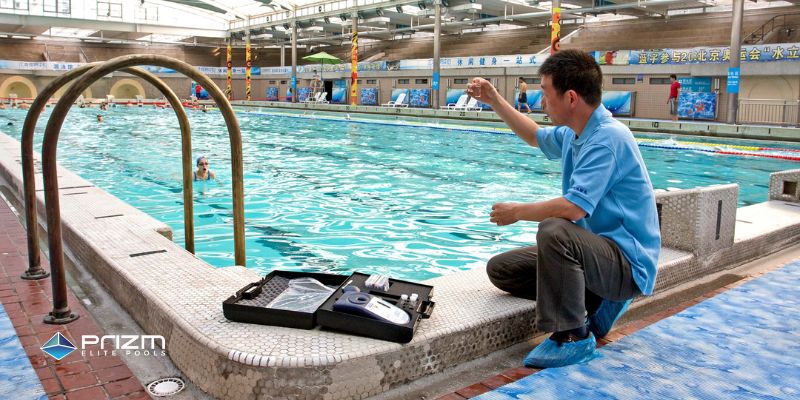The Importance of Regular Pool Inspections: Ensuring Safety and Efficiency
The Importance of Regular Pool Inspections
1. Preventing Accidents and Liability Issues
Another crucial reason for regular pool inspections is to prevent accidents and mitigate liability risks. Pools, especially those in public facilities, pose inherent risks if not properly maintained and supervised. Slip-and-fall accidents, drowning incidents, and injuries from malfunctioning equipment are not uncommon in poorly managed pools. Regular inspections help identify and address hazards such as slippery surfaces, broken tiles, loose handrails, or faulty diving boards before they cause harm to swimmers.
Furthermore, adhering to safety regulations and standards through routine inspections can protect pool owners from legal liabilities. In the event of an accident, negligence in maintaining the pool or failure to comply with safety codes can result in costly lawsuits and damage to reputation. By conducting regular inspections and implementing necessary safety measures, pool owners demonstrate their commitment to providing a safe environment for patrons, reducing the likelihood of accidents and legal repercussions.
2. Ensuring Water Quality and Hygiene
Moreover, thorough inspections can identify mechanical or filtration system failures that could compromise water quality. Filters, pumps, and other equipment must function correctly to keep the water clean and clear. Addressing malfunctions promptly preserves water quality and prolongs the lifespan of expensive equipment, saving owners from costly repairs or replacements in the long run.
3. Extending the Lifespan of Pool Infrastructure
Regular pool inspections play a vital role in extending the lifespan of pool infrastructure. Pools are subject to wear and tear due to constant use, exposure to weather elements, and chemical treatments. Minor issues can escalate into significant structural problems without proper maintenance and inspections, leading to costly repairs or even the need for complete renovations.
During inspections, professionals assess the condition of the pool's structure, including the walls, floors, and tiles, to identify any signs of deterioration or damage. Cracks, leaks, or corrosion can compromise the integrity of the pool, leading to water loss, structural instability, and potential safety hazards. By detecting these issues early through regular inspections, owners can take proactive measures to repair and reinforce the structure, preserving its longevity and avoiding expensive repairs.
Moreover, regular inspections extend to the pool's surrounding areas, including decks, fences, and drainage systems. These components are essential for ensuring the safety and functionality of the pool area. Inspections can identify hazards such as uneven or slippery surfaces, damaged fencing, or inadequate drainage, which, if left unchecked, can lead to accidents and deterioration of the overall pool environment.
4. Promoting Energy Efficiency and Cost Savings
Regular pool inspections enhance energy efficiency and reduce the operational costs associated with pool maintenance. Pools consume significant energy, including heating, filtration, and lighting systems. However, inefficient equipment or maintenance practices can lead to unnecessary energy consumption and inflated utility bills.
During inspections, professionals evaluate the performance of pool equipment, such as pumps, heaters, and lighting fixtures, to ensure they are operating optimally. They may identify opportunities for upgrading to energy-efficient models or implementing automation systems to control energy usage better. Additionally, inspections may reveal areas where energy is wasted, such as leaks in pipes or inefficient circulation patterns, allowing owners to take corrective actions to improve efficiency.
By optimizing energy usage through regular inspections and maintenance, pool owners can reduce their environmental footprint and save on operating costs in the long term. Investing in energy-efficient equipment and practices benefits the environment and contributes to the pool operation's sustainability, making it more economically viable and environmentally responsible.
5. Peace of Mind for Pool Owners and Users
Ultimately, regular pool inspections provide peace of mind for pool owners and users. Owners can rest assured knowing that their pool is safe, clean, and compliant with regulations, reducing the risk of accidents, liabilities, and costly repairs. Users can enjoy their swimming experience without worrying about potential hazards or health risks, allowing them to appreciate the recreational benefits of the pool entirely.
Moreover, regular inspections help build trust and transparency between pool operators and users. By demonstrating a commitment to maintaining high standards of safety, hygiene, and efficiency, pool owners foster a positive relationship with their clientele, encouraging loyalty and repeat business. Whether it is a public pool, a community center, or a private residential pool, regular inspections create a welcoming and enjoyable environment for everyone.
6. Compliance with Regulatory Standards
Regular pool inspections ensure compliance with regulatory standards and local health codes. Authorities impose specific regulations to maintain safety and hygiene standards in public pools and spas. These regulations cover various aspects, including water quality, safety equipment, signage, and accessibility features.
Failure to comply with regulatory standards can result in fines, penalties, or even the closure of the pool facility. Regular inspections help identify areas of non-compliance and allow pool owners to rectify deficiencies promptly. By staying abreast of regulatory requirements and conducting thorough inspections, pool operators demonstrate their commitment to meeting the highest standards of safety and hygiene, thereby protecting the health and well-being of pool users.
Additionally, compliance with regulatory standards enhances the reputation of pool facilities and instills confidence among patrons. Users are more likely to frequent pools that adhere to strict safety and hygiene protocols, knowing that their health and safety are prioritized. Maintaining compliance also fosters positive relationships with regulatory authorities and community stakeholders, which is essential for the long-term success and sustainability of pool operations.
Conclusion
In conclusion, regular pool inspections are essential for ensuring compliance with regulatory standards, promoting peace of mind, and enhancing the overall experience for pool owners and users. By investing in regular inspections and maintenance, pool operators can safeguard the health and safety of their patrons, prolong the lifespan of pool infrastructure, and maintain the integrity and reputation of their facilities.





Comments
Post a Comment